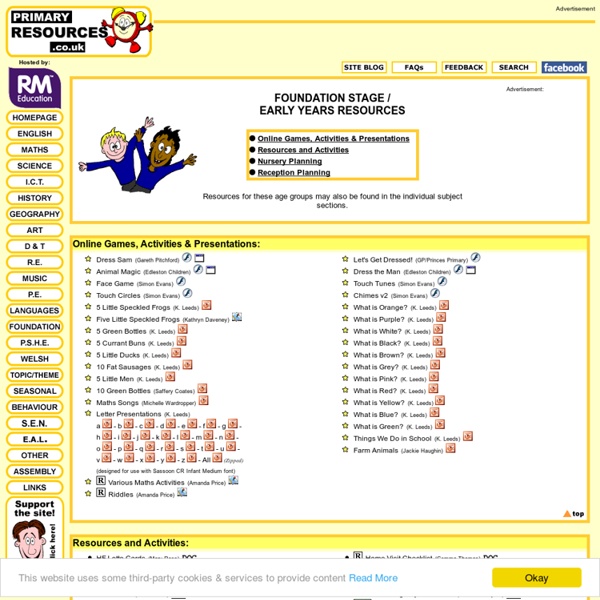



unt with Lecky A basic numeral recognition activitiy. Develop your mouse control and number skills by matching number digits to words in the 1 to 10 range. © v2vtraining.co.uk An initial sounds phonic activity that develops the link between letters and the initial sounds of some common objects. A counting and numeral recognition set of activities. Develop your mouse control and counting skills as you help Lecky collect objects to match numbers in the 1 to 5 or 6 to 10 range. Colouring and matching activity. Use the Simple Scales to weigh the bears. Dressing for the Weather is a drag and drop dressing activity. A drag and drop alien making activity to develop mouse control skills and to develop language. Drag and drop fun with the Scary Spuds. © 3913.co.uk Drag and drop the names of the single digit numbers on to the picture. Drag and drop the names of the colours on to the picture. Comparison activities - developing the language of comaprison using such terms as biggest, smallest, longest, etc.
ESL/EFL Preschool Teachers: Pet Activities for Preschool ELL Link to the files. Worksheets: Since all children have a responsible tutor, there will always be a need for a book or worksheets to evidence learning and work at school. Include a fun way to complete the worksheet and then provide a meaningful activity to do with them. Ws 1: Give students soda bottle caps. Teacher: orange bottle cap! Ws 2 Frame. Then, graph the pets. Ws 3: Worksheet preposition. Place the chair and the box cutout on the board. Teacher: The cat is on the chair. Students: The cat is on the chair. Continue with in and under.. Give each student the worksheet Where ? Students: The gray cat is on the chair. The black cat is under the chair. The brown cat is in the box. Ws 4. Teacher: Look at the blue cat! Continue with all the cutouts. Teacher: red dog! Students: Happy. Teacher: a happy red dog! Students: a happy red dog! Have the students color the animals as you assign a color to each one. Teacher: The happy cat is brown. Continue with all the animals. Teacher: Happy! ws 6. Flashcards:
Dressing Lecky A basic numeral recognition activitiy. Develop your mouse control and number skills by matching number digits to words in the 1 to 10 range. © v2vtraining.co.uk An initial sounds phonic activity that develops the link between letters and the initial sounds of some common objects. A counting and numeral recognition set of activities. Colouring and matching activity. Use the Simple Scales to weigh the bears. Dressing for the Weather is a drag and drop dressing activity. A drag and drop alien making activity to develop mouse control skills and to develop language. Drag and drop fun with the Scary Spuds. © 3913.co.uk Drag and drop the names of the single digit numbers on to the picture. Drag and drop the names of the colours on to the picture. This simple labelling activity can be used to reinforce the idea of labels and as a framework for children to begin to add their own captions and labels to familiar scenes such as a teddy bear's picnic.picnic lesson outline
Early Years Teaching Ideas - General Ideas Cat and Mouse - A fun game for children to play at spare moments during the day. Hunt the Honey - A fun, competitive game, in which children have to find a pot of honey! Don't Get Caught! Who is it? Captain Silence - A simple method of encouraging children to sit quietly. Mr. Magic Wand - Cast a magic spell on your class, to encourage them to sit up and listen carefully! The Magic Carpet -A fun way of learning about other cultures. Sounds - A useful PDF worksheet, which asks children to identify how different instruments make sounds. Find that Sound - Develop children's listening skills with this game, then make up your own orchestra! Rewarding Learning - An effective way of encouraging children and rewarding them when they succeed! Yes / No Sticks - Make these simple tools to help children answer your questions. Snap / Matching Game - A set of cards (in PDF), which can be laminated and used as part of a snap / matching game. Paint the Playground! Broken Link?